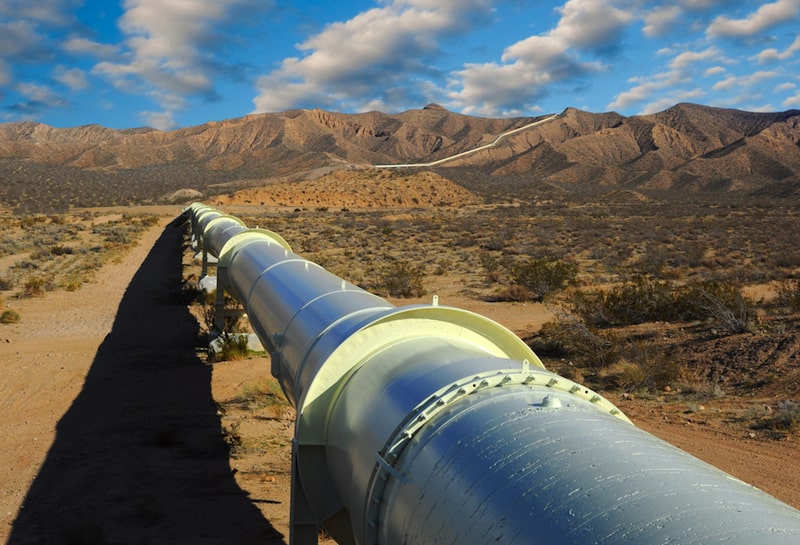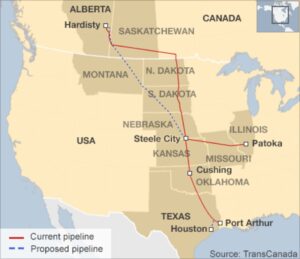
Keystone/XL Pipeline Cancellation
By: Harry French
On January 20th, 2020 construction on the Keystone XL Pipeline in the United States stopped in anticipation of President Joe Biden’s plan to revoke the construction permit for the project. This pipeline has been a hot button issue between those looking to curb fossil fuel usage and those wanting to further economic development (PBS). The previous two administrations showcased this division in thought with President Barack Obama rejecting the XL project and President Donald Trump providing the presidential permit for it to be constructed. To make matters even more complicated this was not just an American issue, but also a Canadian issue. The XL project was a pipeline that connected oil sands in Alberta, Canada to refineries in the Gulf of Mexico. With America’s move to revoke the permits granted for the project, many in Canada have become upset.
The Canadian province of Alberta said it would seek damages for the cancellation of the pipeline. The project was going to cost billions and also have long term benefits for the oil industry in the region. With the cancellation of the pipeline the loss of jobs and future revenue has aggravated parties on both sides of the border (Forbes). In an attempt to save the project which is priced at around $8 billion dollars, TC Energy has offered to invest $1.7 billion in renewable energy to run th e pipeline in Canada. However, the Biden administration’s stance on cancelling the pipeline has remained unchanged (Wall Street Journal). It should be noted that the issue with jobs related to the pipeline has been a bit of a debate in both nations. TC Energy had argued the pipeline would create 119,000 jobs, but a US state department report has contradicted those claims. Instead the report had stated that the construction of the pipeline would create 2,000 temporary jobs and after construction would only support around 35 jobs to operate (NRDC).
e pipeline in Canada. However, the Biden administration’s stance on cancelling the pipeline has remained unchanged (Wall Street Journal). It should be noted that the issue with jobs related to the pipeline has been a bit of a debate in both nations. TC Energy had argued the pipeline would create 119,000 jobs, but a US state department report has contradicted those claims. Instead the report had stated that the construction of the pipeline would create 2,000 temporary jobs and after construction would only support around 35 jobs to operate (NRDC).
Similar to America, not every Canadian was upset by the cancelation of the project. Environmental groups from both nations have congratulated Joe Biden for his move to cancel the pipeline. Furthermore reports from both the (EPA) and a study co-authored by TC Energy’s own scientists have found multiple hazards and issues with the pipeline (NRDC). Issues have arisen with the anti-corrosion lining in the pipes after having been exposed to the elements for a decade. The pipeline also is more likely to leak due to the corrosive nature of the oil it is carrying which comes from tar sands. Tar sand oil is more corrosive than oil from other sources (NRDC). These environmental concerns had been major arguments of both environmental groups and Native American groups in both countries.
I assume many of us remember the massive demonstrations and protests of Native American nations and their allies against the Dakota access pipeline during the administration of President Barack Obama. Now with the cancellation of this project, Natives and environmentalists alike have something to celebrate. Though it should be stated that Natives in America and Canada still have many hurdles to overcome in their history of mistreatment by their respective governments. For example, first nation groups in northern Alberta have moved to sue their provincial government due to the 15 years of tar sands development they had not been consulted on (NPR). The consensus of many native groups and environmentalists is that this has been a win for them. The long term economic impacts remain to be seen and may have positive or negative impacts on the United States and Canada’s economic future.

